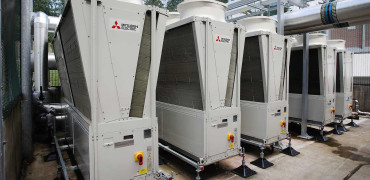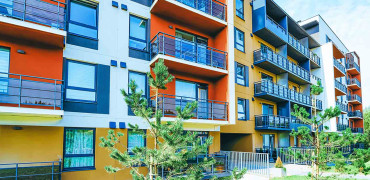Dave Archer explains why net zero buildings are set to be high on the agenda over the next few years, and how the knowledge and skill of HVAC contractors will be vital in getting the UK across the net zero 2050 line.
Buildings are responsible for around 17% of our national greenhouse gas emissions. Reducing this is vital if we are to meet the national net zero emissions deadline by 2050, and M&E contractors have a critical role in making that possible.
The role of the built environment in getting to net zero was underlined recently in March 2024, when the UK government became a signatory to the Chaillot Declaration at the Buildings and Climate Global Forum in Paris.
In a changing HVAC landscape, being the person with the map will be invaluable
A complex issue
The Declaration, adopted by 70 countries, including the UK, focuses on the decarbonisation of buildings and enhancing their climate resilience.
One of the main points of the declaration is the vital importance of reducing or cutting investment in buildings ‘with excessive carbon intensity and the overexploitation of natural resources for construction material production.’
It’s a strongly-worded statement, but one that highlights the fact that we need to take action now. But delivering net zero buildings is a complex issue.
Since 2019, the UK government has introduced or updated significant areas of legislation, including the Building Regulations, which have set higher standards for building energy and carbon performance.
We don’t yet have a legal definition of a ‘net zero’ building, which makes it extremely difficult for clients, designers, and contractors to agree on what needs to be delivered or how.
Some construction industry groups have been working to address this gap, and the industry is developing its own Net Zero Carbon Standard for buildings, which may eventually be adopted into the Building Regulations.
Sustainability is valued
One phenomenon we are seeing is that building developers and owners are often going beyond regulatory requirements to push for higher standards on carbon reduction in their buildings.
Several reports in the property sector show that in the past few years, buildings with strong sustainable credentials are highly valued by potential tenants –earning more rent and retaining value as a result.
Landlords of existing buildings are driving ‘green’ refurbishment to avoid their properties being left behind as stranded assets.
This means that many projects (new builds and refurbishments) already have low-carbon goals in mind. For example, a growing number of new buildings are ‘all-electric,’ and many large refurbishment projects also take existing buildings down this route.
HVAC can make a difference
It’s here that HVAC contractors are helping to make significant contributions to the future of low carbon buildings.
For example, heat pump technology is a key part of the future for space heating and hot water in commercial buildings, with gas boilers often absent from buildings altogether.
In addition, products such as heat pump chillers are helping to reduce energy consumption of heating and cooling systems.
Low-GWP refrigerants are also an important aspect of low-carbon HVAC systems, with R32-based air conditioning now far more common – and refrigerants like CO2 also on the market in commercial heat pumps such as Mitsubishi Electric’s QAHV air source heat pump.
Help is at hand
For contractors, the drive for net zero buildings is a significant opportunity, but it requires all of us to be aware of technologies in the market, and how they can be applied to a project to optimise returns for clients.
In a changing HVAC landscape, being the person with the map will be invaluable.
Because there is no doubt that the journey ahead will be challenging. With a growing focus on the whole life carbon of buildings, HVAC systems must be low-carbon and energy efficient from installation to end-of-life.
Mitsubishi Electric is here to help our contractor partners make the most of the opportunities to achieve low carbon buildings.
We offer training, information resources and advice. We are also on our own net zero journey, and always happy to share what we’ve learned along the way.
Dave Archer is Business Manager - Influenced Sales




